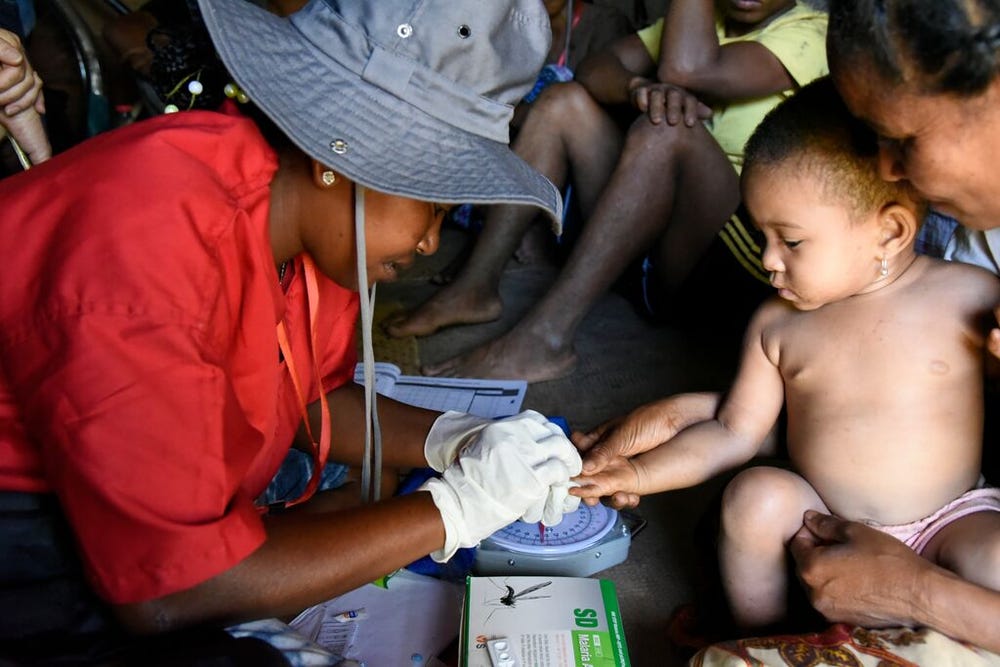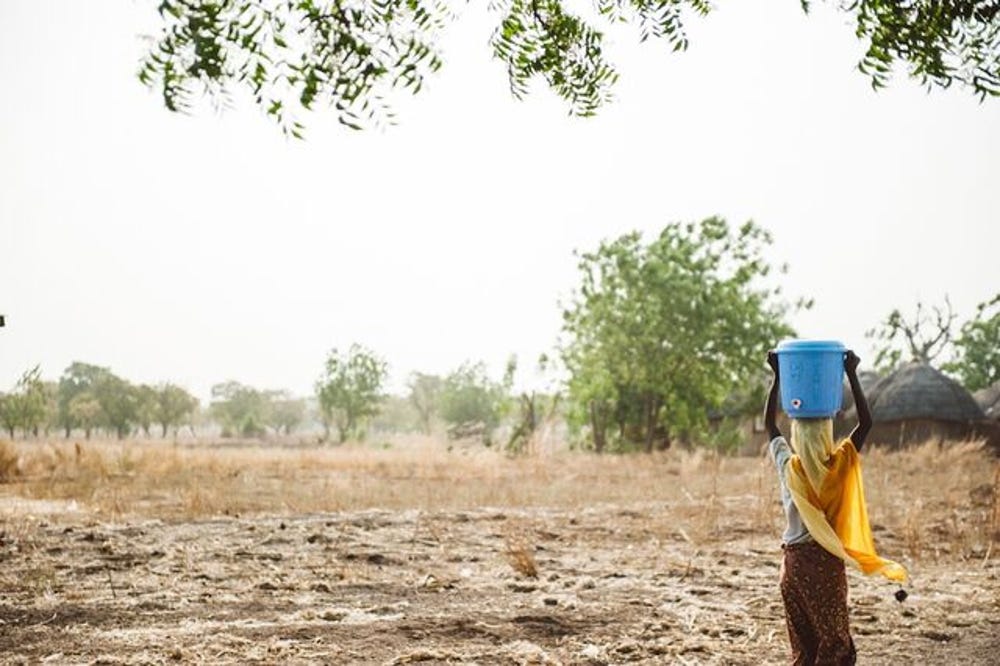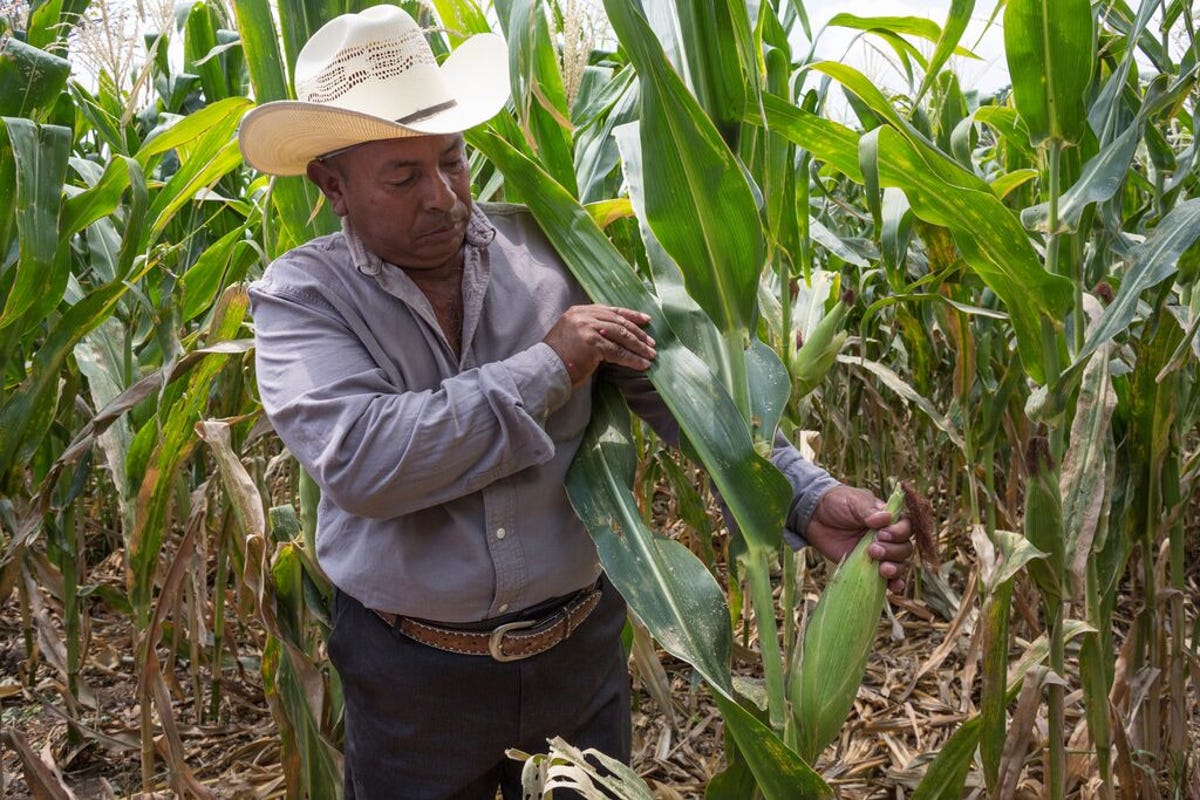Why non-profit and government collaboration is crucial
We talked to Pivot, the Luminos Fund, Saha Global and Semilla Nueva, four of our partners that provide access to fundamental services in Madagascar, Ethiopia, Ghana and Guatemala, to explore NGO-government partnerships and why they’re important.
© Cartier Philanthropy / Andrea Borgarello
Even if they have different goals, mandates and constraints, NGOs and governments need each other; especially when essential services like access to primary healthcare, water, education or nutrition are at stake.
Governments need NGOs because they are flexible, meaning they can try solutions that governments can’t afford. And only governments can provide NGOs the funding, infrastructure and policies that they need to scale their operations and increase their reach.
We talked to PIVOT, The Luminos Fund, Saha Global and Semilla Nueva, four of our partners that provide access to fundamental services in Madagascar, Ethiopia, Ghana and Guatemala, to explore NGO-government partnerships and why they’re important.
PIVOT: ENHANCING HEALTH SERVICES IN MADAGASCAR
Pivot is transforming the health system of the remote rural district of Ifanadiana in South-East Madagascar into a sustainable model of universal health coverage with the aim of replicating it throughout the country.
Tara Loyd, Pivot’s former Executive Director who led conversations with the Malagasy government before recently passing on the leadership torch, says that she knew partnering with the government was “the right move from before we existed as an organisation.” This attitude has resulted in a partnership with the Ministry of Public Health and the potential replication of the district-level model they are deploying into a national model for universal health coverage.
A genuine partnership with government requires working with them from the beginning. “We see the government as the only way to achieve scale,” Tara insists. “To have an NGO take responsibility for a country’s health system is not an approach that feels solid and clear. To help evolve and strengthen the health system that already exists, that feels like an appropriate role for a third-party organisation.”
To address the population’s most urgent health needs, Pivot focuses on childhood health, infectious diseases, and maternal and reproductive health. When Pivot formed in 2014, one in seven children in the Ifanadiana district died before the age of five. Almost half of them were not vaccinated, and health facilities lacked trained staff, medicines and basic infrastructure.
From 2014-2021 in the areas of Ifanadiana where Pivot has been working, they’ve equipped health facilities, ensured strong supply chains, and built capacity among staff, leading to infant mortality decreasing by 33%, compared to a 48% increase recorded over the same period in the rest of the district.
Leveraging existing government infrastructure and personnel is crucial. “Pivot can serve as the safety net ensuring that no patient falls through the cracks, and together we can gather data to evaluate and evolve the approach over time,” Tara explains. “We are there to resource the plans where they are robust and clear, but not fully funded, and to bring innovation and opportunity to try new things, such as staffing beyond norms to have additional trained clinical personnel on hand.” Tara believes this flexibility attracts “innovative, creative, and committed Malagasy national leaders to Pivot.”
The organisation’s long-term goals include multiplying the population they serve from 200,000 to 1,000,000 people over the next 12 months, and to keep working with the Ministry of Health to transform the Malagasy public health system into one that truly includes everyone. To achieve this, Tara envisions the Ifanadiana district as an “innovation hub for all stakeholders,” adding that she hopes it provides “inspiration within Madagascar and beyond.”

© PIVOT
LUMINOS FUND: GIVING CHILDREN A SECOND CHANCE IN EDUCATION
The Luminos Fund works across Ghana, Lebanon, Liberia and The Gambia, but their original and largest programme lies in Ethiopia.
Between 2000 and the beginning of the COVID-19 pandemic, the Ethiopian government reduced the percentage of primary-school-aged children out of schools from 60% to 14%. Despite these gains, at least 3.9 million children still remain outside the education system in Ethiopia.
Luminos runs an accelerated learning programme called Second Chance that can reach these children and help them assimilate into government schools.
Thanks to Luminos, 152,927 children have been given a second chance education, with over 90% successfully transitioning to government schools.
Luminos’ CEO Caitlin Baron explains that it took time to build the trust of the Ethiopian government. “When you work on the challenge of out of school children, that can make governments feel a bit defensive. Because essentially, you're sort of highlighting where the system has failed.”
For several years, Luminos unsuccessfully invited the Ethiopian Regional Education Bureau to visit their classrooms. “But finally,” tells Caitlin, “in year five we got a crack in the door and the head of the Bureau agreed to visit our classrooms, and that's when everything changed.”
The moment was a paradigm shift for Luminos and the Ministry soon became more willing to collaborate.
”A critical piece of the puzzle was our longstanding approach of working in partnership with Community-Based Organizations, and our decision to commission evaluations from Ethiopian researchers, in addition to those from the University of Sussex. Both elements signalled to government that we were a part of the Ethiopian fabric and committed to advancing local solutions.”
Following a successful pilot implemented by the Ministry of Education in 2017, the national government scaled Luminos’ approach to reach thousands of additional students.
Caitlin explains that there’s often openness within governments to try new solutions, but resourcing constraints can stand in the way. Luminos has been able to provide critical support in training teachers in new approaches, generating real time data to inform how, and where, their model is rolled out. To date, Luminos have trained over 4,800 teachers in Ethiopia.
“When you get it right, you appreciate exactly what it took, both from a standpoint of good ideas and programme models, but honestly, just hard work on the part of people on the frontlines to make it work,” Caitlin beams.
Sub-Saharan Africa has the highest rate of children out of schools worldwide, and after school closures from COVID-19, one of the immediate challenges Luminos faces is the risk of a ‘lost generation.’
But with the 2030 SDGs and universal education on Caitlin’s mind, she wants Luminos to continue acting as government’s R&D lab for advancing new ways to reach children at the margins.
“We're currently in five countries, but we'd like to expand in a new country every two years to be around as long-term partners to ministries of education,” she adds.
.jpg?&width=1000&quality=80&auto=webp)
© Luminos Fund
SAHA GLOBAL: PROVIDING WATER ACCESS IN NORTHERN GHANA
Because of the guinea-worm disease that ended in 2009, Ghanaians understand why clean water is important. Technical solutions to providing clean water aren’t lacking, but implementing them in remote locations remains a challenge.
That’s where Saha Global comes in. Since 2008, the organisation has connected the poorest communities in Northern Ghana to simple, inexpensive water treatment technology by empowering local women with chlorinating businesses that provide affordable clean water.
So far, 1,051 trained women run 373 clean water businesses that serve over 128,000 people.
“Most women where we work start collecting water for their family when they’re as young as four, and it's a lot of time and effort and can really be a burden,” says Saha’s Executive Director, Kate Cincotta. “It's so rewarding and exciting for us to turn this into positive opportunities for the women we work with and engage them as experts saying: ‘You've been collecting water your whole life, you know about managing the water supply for your family, you know about the water needs of your community. You should be in charge of this.’ And watching them as they start their own water treatment business.’”
To enable this, Saha has been building informal partnerships with district-level governments since the beginning of their existence, helping them grow from working in two districts to 22.
“As an NGO, we can move quickly and bring in our own funds when we need them because we’re not bound by government budgets,” tells Kate, “but making our work fit within the system’s framework is key to making a partnership work in the long run.
“We believe that if you really want to impact a million people, five million people, ten million people one day, and have our work last, you can only do that through formal government partnerships,’” Kate explains. “the government only gets stronger by doing that and your organisation is able to impact more people.”
To be able to effectively navigate through different regulatory agencies in each district, Saha employed a full-time government relations officer. Only someone completely dedicated to building relationships with the right people could provide Saha with information that enabled the organisation to iterate, progress and expand.
“A priority for us moving forward is aligning the way we talk about our work and our impact with the way the government needs to talk about their work and their impact in order to get their funding and meet the United Nations Sustainable Development Goals,” Kate tells us, also expressing how helping the government deliver on their promises can lead to Ghanaians gaining trust in them. “Affordable is whatever it means to them, and we have to build our model around that.”

© Saha Global
SEMILLA NUEVA: IMPROVING NUTRITION IN GUATEMALA
Semilla Nueva produces and sells biofortified corn seeds, which have been conventionally bred to contain higher levels of quality protein and zinc. The organisation adopts the standard agribusiness distribution model of Central America, selling seeds to distributors who then sell to agro-dealers, who in turn sell to farmers. This aims to improve the nutrition for millions of people in Guatemala, a country that ranks sixth worldwide for prevalence of stunting – the percentage of children aged under five whose height for their age is more than two standard deviations below the median.
Curt Bowen, Semilla Nueva’s Executive Director, has always known they’d need to work with the Guatemalan government “when you’re dealing with a problem that affects a million farming families and over 14 million consumers.”
But designing for scale requires you to ask two critical questions: Who will implement the intervention at scale? And who will pay for it to scale? This led to Semilla Nueva developing a pilot policy they believe the Guatemalan government should adopt.
“In 2021, we paid our first partner seed company roughly $19 per farmer as a subsidy, if they sold biofortified seeds at reduced prices,” Curt tells us. “They reached just shy of 2,000 families. In 2022, they are shooting for 3,500 families. Two new seed companies are interested in participating and we may now get to 10,000 families in 2023. It’s over five times cheaper per farmer reached for us to subsidise another seed company to produce biofortified seed, market it and sell it, then for us to do it all ourselves.
This is our theory of change. Build a policy that governments should use. Pay for it at first. Show it works. When people benefit, get them to show politicians there are votes available if they can institutionalise it.”
Policies with simple mechanisms are transferrable to governments because they’re easy to use. Curt believes that many international development projects have failed to make lasting changes when this point has been ignored.
To appeal to the Guatemalan government, Semilla Nueva borrowed many concepts from the country’s most successful subsidy program in forest protection. In it, certified farmers get paid annually for protecting a certain amount of rainforest. In Semilla Nueva’s program, seed companies receive paperwork from the Guatemalan government showing they produced biofortified maize seeds and receipts showing they sold it at below market prices. Semilla Nueva carries out a small quality control audit before paying a predefined amount. “It’s easy and simple for us, and should be easy, simple, and transparent enough that a government agency with low resources can do the same,” Curt comments.
Because Guatemala is a very libertarian culture, there are far fewer social programs for farmers compared to neighbouring Mexico, El Salvador or Honduras - and it has one of the smallest public sectors in Latin America. Semilla Nueva believes it is precisely because of this fact that it is critical for the government to use its scarce resources on social programs with demonstrated impact and high cost-effectiveness.
But these challenges give Curt and Semilla Nueva a deep sense of purpose: “Malnutrition in Guatemala is a problem that many people feel isn’t solvable, and I think all of us feel so inspired to take on such a tough challenge for people that we’ve spent years getting to know. So many of our staff are from the communities we are helping, and for them this is about helping their neighbours, their people, their culture. Being an ally in that is incredible.”
Curt declares that Semilla Nueva needs partners in Guatemala to help them scale and begin expanding into Honduras and El Salvador, before finally bringing the model to Africa. “There are 1.2 billion people eating maize three times a day now. That number will increase to two billion. Our goal is to make sure that all those people have the nutrition that they need to have a full human future.”

.jpg?&width=1200&quality=80&auto=webp)
.jpg?&width=1200&quality=80&auto=webp)

.jpg?&width=1200&quality=80&auto=webp)
.jpg?&width=1200&quality=80&auto=webp)
.jpg?&width=1200&quality=80&auto=webp)